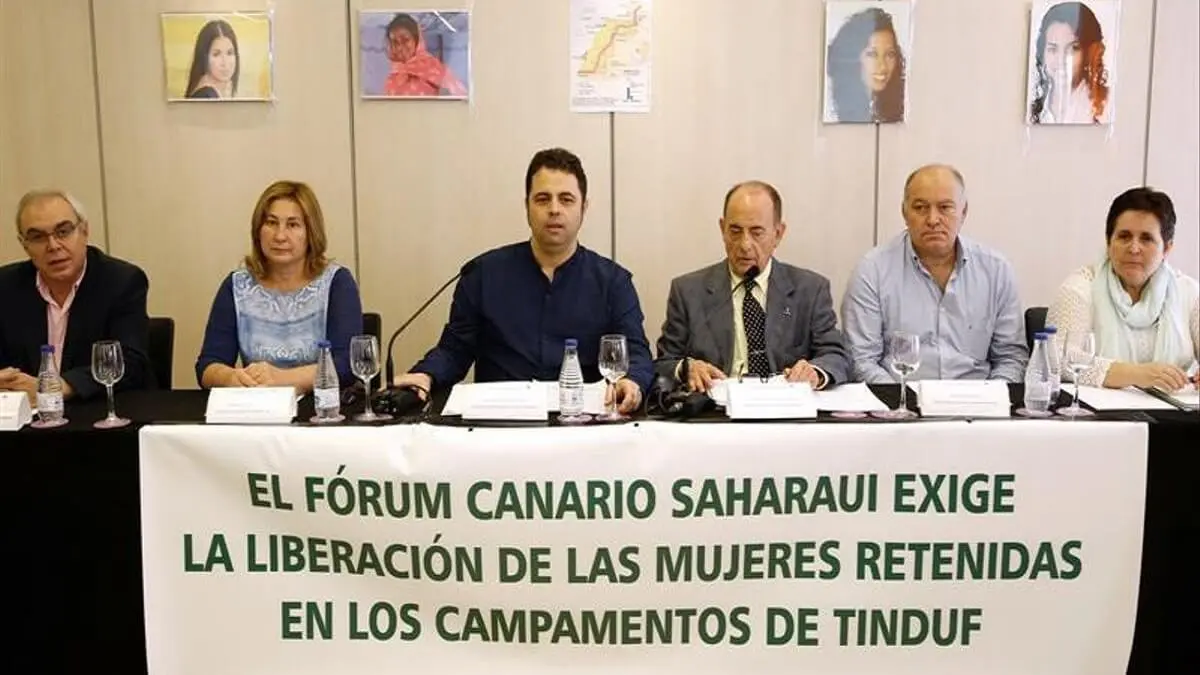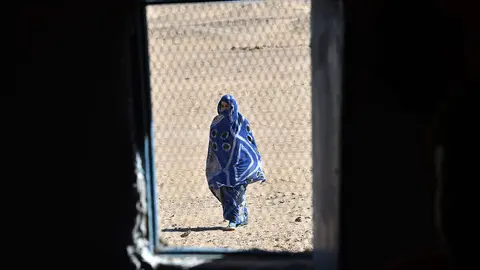Exploring ‘Holidays in Peace’: use of minors and rights violations under the spotlight

It is no coincidence that, back in February and in a coordinated manner, numerous communiqués appeared in various news agencies, originating from the local delegations of friendship with the Sahara and the territorial delegations of the Polisario. ‘The programme ‘Holidays in Peace’ encourages the people of Madrid to take in a Saharawi child this summer’ or “Valencia is looking for families to take in Saharawi children for two months in summer” are some of the headlines that could be read during this first contact during the winter.
Thus, this phase of family recruitment is only one of the first in an increasingly early process, perhaps due to the decreasing number of children participating in the programme year after year.
But the reality is quite different from the arrival of the children, exhausted after an interminable journey and shaken by the adults who take them back and forth like fairground rides between protest demonstrations and official acts with local or regional politicians.
The programme is used as a propaganda tool by both the Sahrawi authorities and Spanish entities. This can distort the humanitarian purpose, turning children into mere pawns in a game of political and diplomatic interests.
It is despicable to use these tedious and interminable acts of children with all kinds of needs and ailments in order to take advantage of the philanthropic feelings and generosity of the people who take them in or contemplate these acts with a lack of knowledge of the political background. These scenes are repeated year after year since the beginning of the programme, in all parts of Spain, with the consequent guidelines set by the Polisario Front and the managers of the programme in Spain as a requirement that cannot be discussed. Pure propaganda, but with the use of minors.
A priori, it might seem that the ‘Holidays in Peace’ programme is an initiative with a laudable purpose: to give Sahrawi children the opportunity to spend the summer in Spain, away from the harsh conditions of the refugee camps in the Sahara desert. However, behind this humanitarian façade, numerous problems and controversies emerge that question the legality and ethics of the programme. The first is the one we have just described: the political use of Sahrawi minors. A lack of respect for their most basic rights on the part of the adults who manipulate them for this purpose.
Another major criticism of the programme is the lack of a solid and transparent organisational structure. Management is often improvised and uncoordinated, leading to confusion for both the foster families and the children themselves. Lack of clarity in communication and administrative processes can lead to stressful situations and misunderstandings, negatively affecting the experience of all involved.
On the other hand, there have been repeated allegations of corruption related to the management of programme funds and resources, which to some extent come from public money. The lack of transparency in financial management and the absence of accountability or any kind of independent audit of the use of these funds raises suspicions about their proper management. These cases erode confidence in the programme and call into question its long-term sustainability. Not surprisingly, the number of participating families is decreasing exponentially each year and is currently at an all-time low.
Regarding the stay in Spain, participating children face several challenges during their stay. Cultural and emotional adaptation can be difficult, causing stress and anxiety. Upon returning to the camps, many experience reverse culture shock, having experienced a temporarily improved lifestyle that contrasts drastically with their daily reality. This process can lead to uprooting and frustration.
Host families also face problems. Lack of adequate preparation and insufficient support from organisers can make it difficult for children to integrate into their temporary homes. In addition, expectations and responsibilities are not always clearly defined, which can lead to misunderstandings and conflicts.
Sahrawi girls, in particular, face additional challenges. As they reach adolescence and adulthood, many feel external pressure to adhere to the traditional and limited roles imposed on them from within their community.
This comes after experiences that have opened their minds to other possibilities. This dichotomy ends up causing internal and social conflicts, affecting their emotional well-being and personal development.
This is where the biggest and most abominable controversy that has dogged this programme for decades, especially during the last ten years, emerges with force. This is none other than the nearly 100 cases of young people (mostly women) who arrived in Spain through ‘Vacaciones en Paz’ as children, who had to prolong their stay for years due to various illnesses, and who, when they freely decided to remain in Spain indefinitely as adults, were retaliated by being retained or kidnapped by their biological families in the camps.
From the cases of Mahayuba, Darya, Koria, Nadjiba or Maloma (perhaps the most mediatic and which put this problem on the map at a national level), we have moved on to other more recent cases such as that of Felah. The spearhead in the fight against these execrable acts is the collective ‘La Libertad es su Derecho’ (Freedom is your Right), mainly through its spokespersons Elisa Pavón and Bienvenida Campillo. In fact, last April, this group announced that in 2024 alone, 4 cases of kidnapped women had already been recorded.
The Polisario Front declares that this situation does not concern them and that it is a problem between families, thus becoming an accomplice of these rights violations together with Algeria, the state in whose territory these events take place.
When a family in Tindouf is allowed to hold an adult against her will, the Polisario's lack of effective action in these cases calls into question not only its authority, but also its proclaimed commitment to women's equal rights. The reality is that the Polisario Front needs not only people for its cause, but above all fertile women to perpetuate it even at the cost of being abducted. That is why we will not see any of its spokespersons or official spokespersons denounce this systematic mechanism of human rights violations, all for the cause. The years go by and the cases continue, but nothing is done.
After all this, as if this were not enough, in recent times another problem has been added, as the ‘Holidays in Peace’ programme has also been marked by some cases of paedophilia that have come to light in Spain. The most recent one in Argentona (Catalonia), uncovered by the National Police in Catalonia and involving more than 70 minors. The main suspect took in Sahrawi children aged between 10 and 12 years old in his home for several summers. A case is added to others with final sentences ranging from 2 to 5 years, such as Alicante (2018), Elche (2020) or Cáceres (2021).
These cases demonstrate the vulnerability of Sahrawi children participating in the programme and the insufficient protection and supervision that should be guaranteed to prevent such atrocities. While initially isolated cases, the repetition of these incidents suggests systemic failures in the selection and monitoring process of host families, as well as a lack of effective mechanisms to detect and prevent abuses.
It should be imperative that programme organisers implement more rigorous screening and monitoring of families, provide adequate child protection training, and establish clear and accessible channels for children to report abuse. In addition, there must be a clear and transparent commitment from all parties involved to ensure the safety and well-being of these vulnerable children, taking responsibility and not ‘standing on the sidelines’ if the situation unfortunately demands it. Afterlife goes beyond asking for a mere certificate of sexual offences at the beginning of the process, the only requirement demanded of applicants, but insufficient in view of the facts.
Although ‘Holidays in Peace’ seeks to offer a respite for Sahrawi children from the hellish desert summer, the multiple shortcomings in its organisation, management and transparency call into question its effectiveness and ethics. Without the necessary rigorous scrutiny and structural reform to ensure that the programme truly fulfils its humanitarian objective without harming the children and host families, it is undoubtedly a programme in decline, outdated and co-opted by political or economic interests. Therefore, in its current format, its immediate cancellation and disappearance should be seriously considered.
It is obvious that this programme is dotted with personal interests from which many benefit at the expense of a handful of innocent minors. And if no one remedies it before then, every summer we will have a new chapter.



